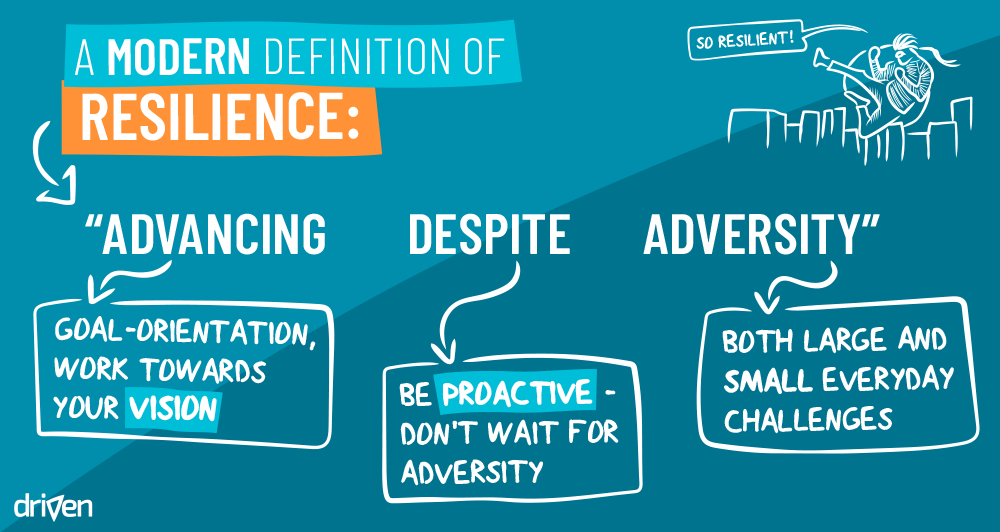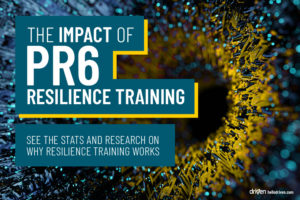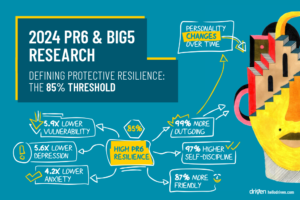Traditionally, personal resilience has often been defined as how we bounce back from difficult situations. However, this definition doesn’t encompass the true breadth of resilience skills and their many benefits.
To ensure the definition of resilience includes all aspects, let’s modernise the definition to this: Resilience is about advancing despite adversity.
What is resilience? Let’s explore each of the words of this modernised resilience definition.
Want to learn more about resilience and improve your own resilience? Get the Driven app.
“Advancing”
The key shift in focus is away from simply ‘bouncing back’, which implies returning to the status quo, and towards ‘advancing’, which is about continual growth and achievement of your goals. Naturally, there can only be advancement if a goal exists to advance towards. This highlights the critical need to have clarity of purpose in the first place. We can contrast this concept of ‘goal-oriented resilience’ with another type resilience, which we shall call ‘nihilistic resilience’. Nihilistic resilience is when an individual may appear resilient not because they have developed resilience skills, but instead because they do not care enough to be invested in any particular outcome, and therefore is not affected by adversity in general. This distinction is important as not all forms of resilience are equal, and one is clearly more constructive than the other. Developing this type of goal-oriented resilience means you need to have clarity of purpose so that you can stay focused on what is important when facing a difficult situation. This will orient you and make you decisive.“Despite”
Another change is adding the word ‘despite’, but why that word and not ‘because of’ or ‘through’? The word ‘despite’ encapsulates an aspect of resilience that is often neglected, namely proactivity. A highly proactive person who learns from the mistakes of others may be able to avoid many forms of adversity and advance regardless. Here the point of using the word ‘despite’ is to clarify that for the truly resilient person, adversity is not a prerequisite to advancing towards their goals. Similarly, we cannot wait for adversity before we grow and finally pursue resilience. As Otto von Bismarck said, perhaps somewhat harshly, “Only a fool learns from his own mistakes. The wise man learns from the mistakes of others.”Resilience is about advancing despite adversity.
What Is Resilience? Modernising The Definition Of ResilienceCombined with this is another critical aspect of resilience that is nearly universally ignored – resilience is to be developed ahead of time, before facing a major crisis. So often people flock to books about resilience only after they have faced a traumatic event, looking for something to help them through their emotions. However, we are far better off working on resilience proactively as a necessary skill for successful living, which we can then call upon whenever a situation arises along the way.



